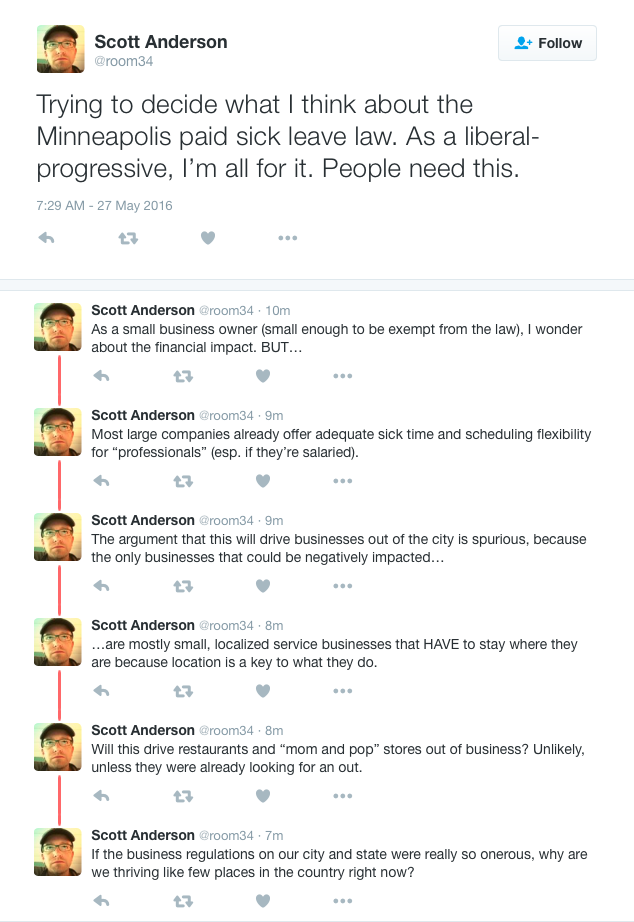Note that I didn’t say bad, or evil, but stupid.
Before we go any further, let me state that I have never studied economics, and I’ve only taken one intro-level philosophy class. The topics I’m bringing up here are steeped in both, and I know I’m out of my element.
Capitalism has, as a core principle, a belief that competition drives innovation and growth, which helps a society to thrive; whether its helping society to thrive is intentional or just a consequence is debatable. And in practice capitalism is just as susceptible to corruption as communism — both fail as a result of the boundless greed of the powerful. But for the moment let’s not dwell on the big picture… let’s just look at one example of how capitalism can be… well, stupid.
I live in Minneapolis, a large city of 425,000. Along with St. Paul (pop. 310,000) it is the core of a metro area of 3.6 million. Like all large cities, Minneapolis is divided into a number of distinct communities. The community I live in is called Longfellow, and combined with neighboring Nokomis, the immediate area has a population of around 65,000 people.
Unlike many other parts of the city, Longfellow-Nokomis has always resisted the heavy encroachment of large chain businesses. Of course we have a Target, a scattering of McDonald’s and Subway locations, etc. But for the most part, the businesses here are small and local.
In fact, in an area comprising about 13 square miles, home to 15% of the entire city’s population, there is only one Caribou Coffee, and until recently, zero Starbucks (not counting the one inside the Target… which is a capitalism story for another blog post). Of course we have dozens of local independent coffee houses, but only one each of the two big chains.
And they’re right across the street from each other.
How does it benefit the citizens of the community to have a Caribou and a Starbucks within sight of each other, when the vast majority of residents of the area don’t live within walking distance of either one? Who does a decision like this really serve? How does this help society to thrive?
What we’re looking at here is not a failure of capitalism in principle, but an example of how it fails in practice, as power is consolidated in the hands of a few greedy, powerful corporations.
I’m sure this is the point where a (21st century) Republican dutifully says, “But how can a corporation be greedy? Greed is a human emotion, and corporations are businesses, not people.” Oh right, corporations are only people when it comes to exercising their right to free speech. (And political money equals speech.) I’m sure few, if any, of the individuals within these corporations are ruthlessly greedy. But they don’t need to be. The system is built on a principle whose logical consequence is that increasing profits outweighs any other considerations. That could be defined as greed.
One could argue that Caribou and Starbucks have grown to that tipping point in capitalism where they are no longer focused on competition through innovation, but on stifling competition through consolidation of power. Nothing better exemplifies to me capitalism’s absurd failure than a business opening its first location in a large, heavily populated area within feet of its rival.
Sadly, I’m sure these corporations did extensive research and determined that the best location in Longfellow-Nokomis for a major chain coffee house was right at this spot, even if there was already another one right there. And I bet both will do booming business, because… honestly? Most of us just don’t question it.
Now get in the car. I want some coffee.
